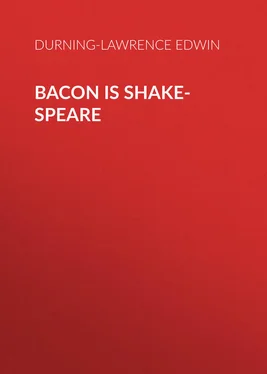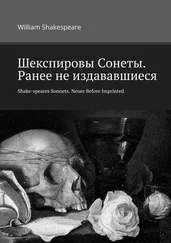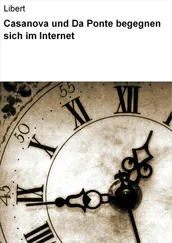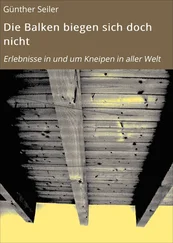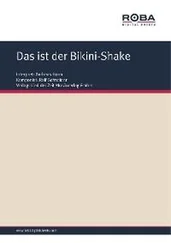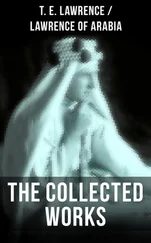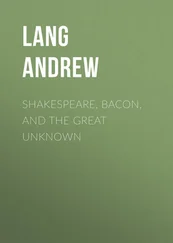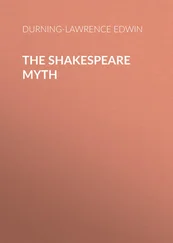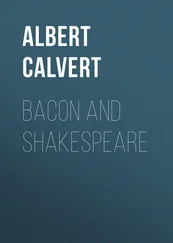Edwin Durning-Lawrence - Bacon is Shake-Speare
Здесь есть возможность читать онлайн «Edwin Durning-Lawrence - Bacon is Shake-Speare» — ознакомительный отрывок электронной книги совершенно бесплатно, а после прочтения отрывка купить полную версию. В некоторых случаях можно слушать аудио, скачать через торрент в формате fb2 и присутствует краткое содержание. Жанр: foreign_antique, foreign_prose, на английском языке. Описание произведения, (предисловие) а так же отзывы посетителей доступны на портале библиотеки ЛибКат.
- Название:Bacon is Shake-Speare
- Автор:
- Жанр:
- Год:неизвестен
- ISBN:нет данных
- Рейтинг книги:5 / 5. Голосов: 1
-
Избранное:Добавить в избранное
- Отзывы:
-
Ваша оценка:
- 100
- 1
- 2
- 3
- 4
- 5
Bacon is Shake-Speare: краткое содержание, описание и аннотация
Предлагаем к чтению аннотацию, описание, краткое содержание или предисловие (зависит от того, что написал сам автор книги «Bacon is Shake-Speare»). Если вы не нашли необходимую информацию о книге — напишите в комментариях, мы постараемся отыскать её.
Bacon is Shake-Speare — читать онлайн ознакомительный отрывок
Ниже представлен текст книги, разбитый по страницам. Система сохранения места последней прочитанной страницы, позволяет с удобством читать онлайн бесплатно книгу «Bacon is Shake-Speare», без необходимости каждый раз заново искать на чём Вы остановились. Поставьте закладку, и сможете в любой момент перейти на страницу, на которой закончили чтение.
Интервал:
Закладка:
Francis Beaumont is The Writer of Passages. This exactly describes him as he is known as writing in conjunction with Fletcher. "Beamount and Fletcher make one poet, they single dare not adventure on a play."
William Shakespeere is "The writer of weekely accounts." This exactly describes him, for the only literature for which he was responsible was the accounts sent out by his clerk or attorney.
Turning over the pages of the little book on page 9 the cryer calls out "Then Sylvester, Sands, Drayton, Beaumont, Fletcher, Massinger, Shakespeare (sic) and Heywood, Poets good and true." This statement seems to be contradicted so far as Shakespeare is concerned by the defendant who says on page 31 "Shakespear's (sic) a mimicke" (that is a mere actor not a poet).
"Beamount and Fletcher make one poet, they
Single, dare not adventure on a play."
Each of these statements seems to be true. And on Page 33
Apollo 4 4 The words attriuted to Apollo, are of course spoken by his Chancellor Bacon. See note on the number 33 on page 112.
says
"We should to thy exception give consent
But since we are assur'd, 'tis thy intent,
By this refusall, onely to deferre
That censure, which our justice must conferre
Upon thy merits; we must needs decline
From approbation of these pleas of thine."
That is, Apollo admits that Shakespeare is not a poet but a "mimic," the word to which I called your attention in the "Return from Parnassus" in relation to "this mimick apes." In this little book Shakespeare's name occurs three times, and on each occasion is spelled differently.
This clear statement that the actor Shakespeare was not a poet but only a tradesman who sent out his "weekly accounts" is, I think, here for the first time pointed out. It seems very difficult to conceive of a much higher testimony to Bacon's pre-eminence in poetry than the fact that he is placed as "Chancellor of Parnassus" under Apollo. But a still higher position is accorded to him when it is suggested that Apollo feared that he himself should lose his crown which would be placed on Bacon's head.
Walter Begbie in "Is it Shakespeare?" 1903, p. 274, tells us: – That Thomas Randolf, in Latin verses published in 1640 but probably written some 14 years earlier says that Phoebus was accessory to Bacon's death because he was afraid lest Bacon should some day come to be crowned King of poetry or the Muses. Farther on the same writer declares that as Bacon "was himself a singer" he did not need to be celebrated in song by others, and that George Herbert calls Bacon the colleague of Sol [Phoebus Apollo].
George Herbert was himself a dramatic poet and Bacon dedicated his "Translation of the Psalms" to him "who has overlooked so many of my works."
Mr. Begbie also tells us that Thomas Campion addresses Bacon thus "Whether the thorny volume of the Law or the Schools or the Sweet Muse allure thee."
It may be worth while here to quote the similar testimony which is borne by John Davies of Hereford who in his "Scourge of Folly" published about 1610, writes
"To the royall, ingenious, and all-learned
Knight, —
Sr Francis Bacon.
Thy bounty and the Beauty of thy Witt
Comprisd in Lists of Law and learned Arts ,
Each making thee for great Imployment fitt
Which now thou hast, (though short of thy
deserts)
Compells my pen to let fall shining Inke
And to bedew the Baies that deck thy Front ; —
And to thy health in Helicon to drinke
As to her Bellamour the Muse is wont:
For thou dost her embozom; and dost vse
Her company for sport twixt grave affaires;
So vtterst Law the liuelyer through thy Muse .
And for that all thy Notes are sweetest Aires ;
My Muse thus notes thy worth in eu'ry Line,
With yncke which thus she sugers; so, to shine ."
But nothing can much exceed in value the testimony of Ben Jonson who in his "Discoveries," 1641, says "But his learned, and able (though unfortunate) Successor [Bacon in margin] is he, who hath fill'd up all numbers, and perform'd that in our tongue, which may be compar'd or preferr'd either to insolent Greece , or haughty Rome ."
"He who hath filled up all numbers" means unquestionably "He that hath written every kind of poetry." 5 5 While I am perfectly satisfied that the above explanation of the meaning of the expression "All numbers" is the correct one; I am not unaware that at the date at which the Discoveries appeared "All numbers" would be generally understood in its classical sense; Jonson of course not being permitted to speak too plainly. He was foreman of Bacon's good pens and one of his "left-hands"; as any visitor to Westminster Abbey may learn, the attendants there being careful to point out that the sculptor has "accidentally" clothed Jonson's Bust in a left-handed coat. (With respect to the meaning of this the reader is referred to Plate 33, page 131.) Thus far was written and in print when the writer's attention was called to the Rev. George O Neill's little brochure, "Could Bacon have written the plays?" in which in a note to page 14 we find "Numeri" in Latin, "numbers" in English, applied to literature mean nothing else than verse, and even seem to exclude prose. Thus Tibullus writes, " Numeris ille hic pede libero scribit " (one writes in verse another in prose), and Shakespeare has the same antithesis in "Love's Labour Lost" (iv., 3), "These numbers I will tear and write in prose." Yet all this does not settle the matter, for "Numeri" is also used in the sense merely of "parts". Pliny speaks of a prose work as perfect in all its parts, " Omnibus numeris absolutus ," and Cicero says of a plan of life, " Omnes numeros virtutis continet " (it contains every element of virtue). So that Jonson may have merely meant to say in slightly pedantic phrase that Bacon had passed away all parts fulfilled.
Alexander Pope the poet declares that he himself "lisped in numbers for the numbers came." Ben Jonson therefore bears testimony to the fact that Bacon was so great a poet that he had in poetry written that "which may be compar'd or preferr'd either to insolent Greece or haughty Rome ."
But in 1623 Ben Jonson had said of the AUTHOR of the plays
"Or when thy sockes were on Leaue thee alone, for the comparison Of all, that insolent Greece or haughtie Rome Sent forth, or since did from their ashes come."
Surely the statements in the "Discoveries" were intended to tell us who was the AUTHOR of the plays.
After perusing these contemporary evidences, and they might be multiplied, it is difficult to understand how anyone can venture to dispute Bacon's position as pre-eminent in poetry. But it may be of interest to those who doubt whether Bacon (irrespective of any claim to the authorship of the plays) could be deemed to be a great poet, to quote here the words of Percy Bysshe Shelley, who in his "Defence of Poetry" says
"Bacon was a poet. His language has a sweet and majestic rhythm, which satisfies the sense, no less than the almost superhuman wisdom of his philosophy satisfies the intellect. It is a strain which distends and then bursts the circumference of the reader's mind, and pours itself forth together with it into the universal element with which it has perpetual sympathy."
The immortal plays are the "Greatest Birth of Time," and contain a short summary of the wisdom of the world from ancient times, and they exhibit an extent and depth of knowledge in every branch which has never been equalled at any period of the world's history. In classic lore, as the late Mr. Churton Collins recently pointed out, they evince the ripest scholarship. And this is confirmed by classical scholars all the world over.
Читать дальшеИнтервал:
Закладка:
Похожие книги на «Bacon is Shake-Speare»
Представляем Вашему вниманию похожие книги на «Bacon is Shake-Speare» списком для выбора. Мы отобрали схожую по названию и смыслу литературу в надежде предоставить читателям больше вариантов отыскать новые, интересные, ещё непрочитанные произведения.
Обсуждение, отзывы о книге «Bacon is Shake-Speare» и просто собственные мнения читателей. Оставьте ваши комментарии, напишите, что Вы думаете о произведении, его смысле или главных героях. Укажите что конкретно понравилось, а что нет, и почему Вы так считаете.
